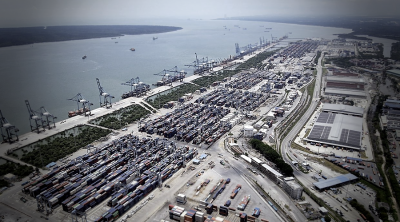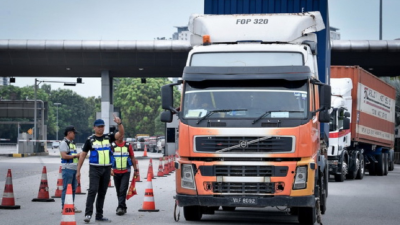
As we celebrate Malaysia Day, a day that symbolises unity and progress, it is crucial to reflect on the safety and well-being of the most vulnerable members of our society—our children.
In a nation that strives for development and harmony, we cannot allow our children to be exposed to dangers, whether physical, mental, or emotional.
Yet, recent events remind us that we still have much to do in ensuring the safety and security of our young ones.
Tragic fires and inadequate safety measures
In recent years, there have been too many heart-breaking cases of fires in tahfiz schools, which have resulted in the deaths of innocent children.
One of the most devastating incidents occurred in 2017, where 23 students and teachers perished in a fire at Darul Quran Ittifaqiyah in Kuala Lumpur.
It was later revealed that many of these institutions lacked proper fire safety measures, including functioning fire exits and fire-fighting equipment.
Unfortunately, these preventable tragedies have occurred repeatedly over the years, with no significant improvements in oversight or enforcement.
As of today, several incidents like this have occurred, and with each case, we see the grief of families who have lost their children to unsafe environments.
It is unacceptable that our children are being sent to places where their lives are put at risk due to negligence or poor safety standards.
The disturbing reality of child abuse in religious institutions
In an even more shocking development, recent police raids on madrasas and child care homes owned by Global Ikhwan Service & Business Holdings revealed the systematic abuse and grooming of children.
According to the police, over 400 children were kept under harsh and abusive conditions.
Disturbingly, the Inspector-General of Police (IGP), Razarudin Husain, highlighted how children were even taught to sodomise one another at these institutions.
This unimaginable cruelty has been happening for years, yet it was only through these recent raids that the public became fully aware of the magnitude of this crisis.
Many parents, desperate for child-minding services or hoping to provide their children with religious education, unknowingly sent their children to these unsafe and abusive institutions.
The aftermath of these raids has left many Malaysians outraged and anxious about how such systemic abuse could happen undetected for so long.
A national crisis in need of immediate action
Over the last decade, there have been repeated calls for stricter regulation and monitoring of institutions that house or educate children.
Despite these warnings, little has changed, and the recent revelations serve as a painful reminder that our nation has failed to protect our children.
This is not just a crisis for the families directly affected—it is a national crisis.
The future of our country rests on the shoulders of our children, and if we allow them to be harmed in such tragic and preventable ways, we are failing not only them but also our nation’s future.
As parents, citizens, and policymakers, we have a collective responsibility to ensure that no child in Malaysia is subjected to abuse, neglect, or danger.
Creating a safe and secure future for our children
So, how do we move forward to create a Malaysia where every child is safe, nurtured, and given the opportunity to thrive?
Suggested steps we can take as a nation to ensure the well-being of our children:
Stricter regulations and regular inspections: All institutions, including religious schools, day cares, and boarding facilities, must be subject to stricter regulations regarding safety, hygiene, and staff training.
These regulations must include mandatory fire safety measures, child protection policies, and background checks for all staff.
Regular and surprise inspections should be conducted to ensure compliance with these standards, and institutions found lacking should be closed until they meet the necessary requirements.
These must come under a Ministry of Women, Family and Community Development irrespective of religious or non-religious.
Comprehensive child protection laws: Malaysia must strengthen its child protection laws, making it mandatory for all child care and educational institutions to follow strict child welfare guidelines.
This includes the establishment of an independent body responsible for overseeing and investigating any complaints of child abuse or neglect in such institutions.
Parental awareness and education: Many parents are unaware of the conditions in the institutions where they send their children.
There should be national campaigns to educate parents on how to assess the safety and reliability of schools, religious institutions, and childcare facilities.
This includes encouraging parents to ask questions, inspect facilities, and demand transparency from those responsible for their children’s care.
The mainstream radio, television and print media must step awareness campaign to ensure no child is left to suffer.
Support for survivors and rehabilitation programs: For those children who have been victims of abuse, it is crucial that they receive the psychological support and care they need to heal and recover.
The government should work with NGOs and mental health professionals to provide rehabilitation programs for survivors of abuse and trauma.
Establish a centre under all the major hospitals in Malaysia, so that it is easy reach for the poor parents and family who have to face such ordeal in their life.
Investing in childcare and education: A long-term solution to prevent these tragedies is to invest in quality childcare and educational institutions that are both affordable and accessible.
The government should work to ensure that parents have access to safe, certified, and affordable options for their children’s education and care, reducing the need to resort to unregulated institutions.
Remove child care from the ambit of all religious bodies, thus ensuring no one is above the law when it comes to childcare.
Empowering law enforcement: Our police force must be empowered and resourced to investigate cases of child abuse and misconduct in institutions without delay.
They must also collaborate with other agencies, such as social services, to ensure that children in dangerous environments are quickly rescued and placed in safe hands.
Our police must be commended for their bold ad brave action in saving these poor children of ours.
Promoting a culture of respect and inclusivity: Creating a safe environment for children also involves fostering a culture of respect and inclusivity. This means promoting values such as empathy, tolerance, and respect for diversity within families, schools, and communities.
Programs that address bullying, discrimination, and violence can help build a more supportive and inclusive environment for children.
Educational institutions should implement anti-bullying policies and create safe spaces where children can express their concerns and seek help.
Encouraging open dialogues about respect and inclusivity can help children develop positive social skills and reduce the likelihood of harmful behaviour.
Leveraging technology for safety: In today’s digital age, technology can be both a tool for safety and a potential risk. It’s essential to use technology to enhance child protection efforts while being mindful of its risks.
Monitoring tools and apps can help parents track their children’s online activities and protect them from harmful content.
However, it’s equally important to balance surveillance with respect for privacy.
Educational programs on digital literacy and online safety should be integrated into school curricula to help children navigate the digital world responsibly.
Teaching children about online threats and encouraging open communication about their online experiences can help protect them from cyberbullying and exploitation.
Let us build a safe nation for our children: Malaysia Day is a day of unity, reflection, and hope. It is also a day when we must take stock of our shortcomings and commit to building a better future for the generations to come.
Our children deserve to grow up in a nation that values their safety and well-being above all else.
We must not allow any more children to suffer in silence or perish in unsafe institutions.
Let us work together—parents, educators, religious leaders, and policymakers—to create a Malaysia where every child is safe, loved, and given the chance to thrive.
Let this Malaysia Day be a turning point in our nation’s journey toward ensuring the safety of every child, today and for generations to come.

(Ravindran Raman Kutty is an active social worker.)
ADVERTISEMENT
ADVERTISEMENT








































